
Breaking stereotypes: how teachers are trained in Azerbaijan to work with children with disabilities
In Azerbaijan, a country with a population of 10 million, about 70,000 children are registered with a disability.
According to the country’s Ministry of Education, only 37% of school-aged children with disabilities are involved in learning – either at home or in specialised boarding schools (UNICEF provides the figure at 17%). The rest do not receive any school education at all.
The absence of at least basic education minimises the opportunities that children with disabilities have to integrate into society and become financially independent. Even as adults, they are forced to rely on the support of parents, guardians and other family members.
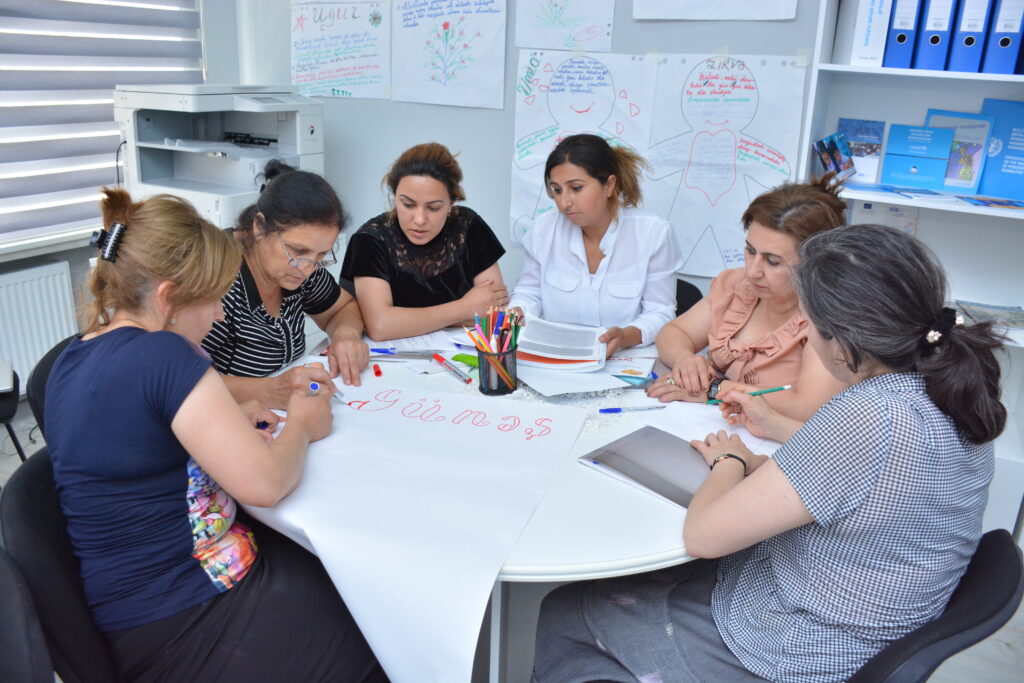 Refresher courses for primary school teachers conducted jointly with the Ministry of Education of Azerbaijan
Refresher courses for primary school teachers conducted jointly with the Ministry of Education of Azerbaijan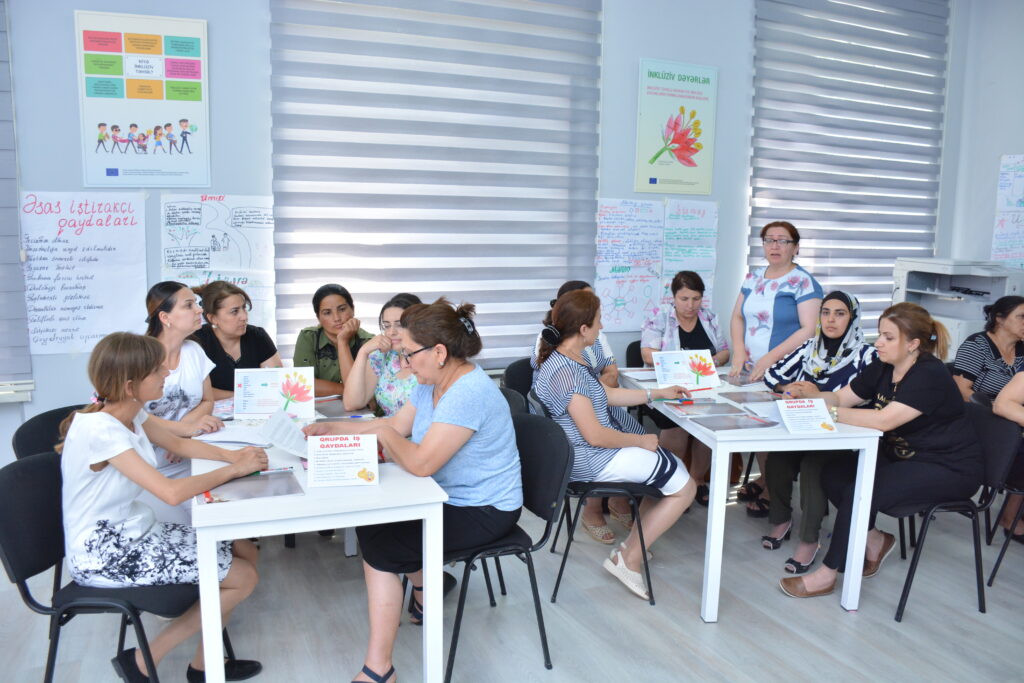 Refresher courses for primary school teachers conducted jointly with the Ministry of Education of Azerbaijan
Refresher courses for primary school teachers conducted jointly with the Ministry of Education of Azerbaijan
In this case, significant human resource potential is lost nationally that could be directed towards the country’s development. After all, many people with disabilities have outstanding talents.
For example, globally renowned astrophysicist Stephen Hawking suffered from amyotrophic lateral sclerosis and was almost completely paralysed, left a legacy in the history of space science.
The EU-funded project “Enhancing Teacher Skills in Inclusive Education” is contributing towards making a difference to Azerbaijan’s education for children with disabilities.
The Heydar Aliyev Foundation’s Public Association “Regional Development” (RIIB) is implementing the project within the framework of cooperation with UNICEF, with the support of the Ministry of Education of Azerbaijan. The EU has contributed €630,000 towards the project with additional financial support from the Heydar Aliyev Foundation.
According to RİİB project manager Leyla Tagiyeva, the main goal is to familiarise teachers in Azerbaijan with the principles of inclusive education (IE); provide them with the necessary resources; and support the creation of a child-friendly atmosphere in the classroom, where all children – without exception – have equal chances for a high standard of education.
At the final stage of the project, it is planned to make recommendations on modernising the legislative framework and filling in the gaps in the field of IE.
In the long run, the curriculum needs to be adapted in schools so that it meets the needs of all children, including children with disabilities, without violating the principle of universality for all students without any form of discrimination.
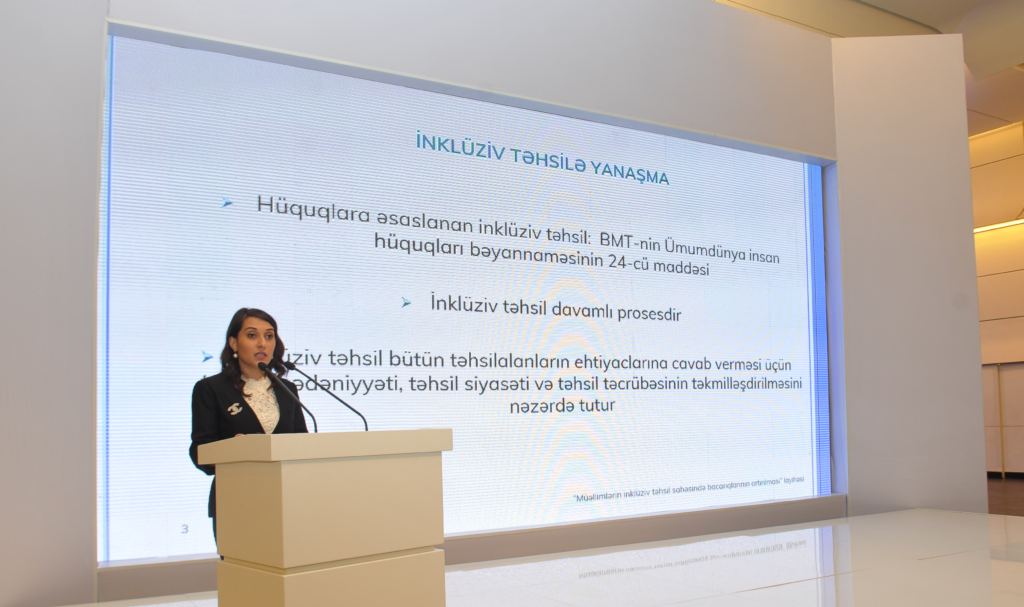 Leyla Tagiyeva, project manager
Leyla Tagiyeva, project manager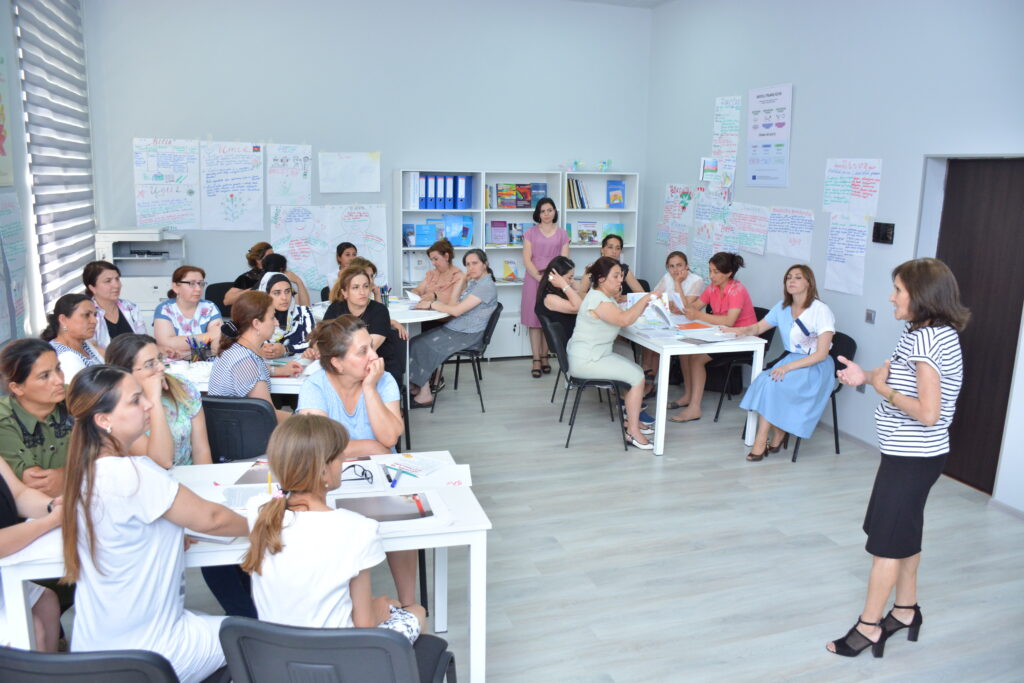 Refresher courses for primary school teachers conducted jointly with the Ministry of Education of Azerbaijan
Refresher courses for primary school teachers conducted jointly with the Ministry of Education of Azerbaijan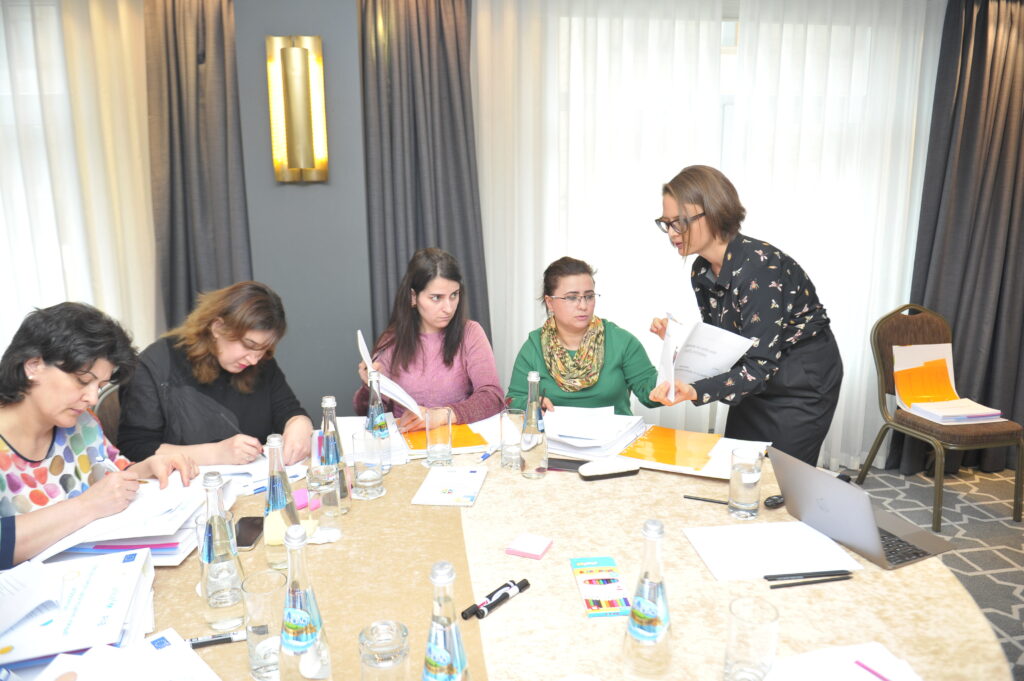 In the framework of the project 18 teachers were involved as trainers and attended courses for trainers conducted by international experts
In the framework of the project 18 teachers were involved as trainers and attended courses for trainers conducted by international experts
‘A healthy society is based on the principles of inclusion, that is, the acceptance of all people without exception. As part of our project, we are trying to instil these values in teachers so that they consider disability from the perspective of human rights, and not from a medical point of view’, says Leyla Tagiyeva.
‘For the most part, teachers understand that inclusive education is a trend in the modern educational system and do not oppose it. The vast majority of the teachers who passed our trainings were open to innovations and are ready to work on themselves’, she adds.
The project started in May 2018 and will be completed by September 2020. It aims to cover 1,000 primary school teachers, 400 university teachers and more than 2,000 students from pedagogical departments. Training takes place in three stages since the beginning of the academic year, and will start again in September.
Geographically, the project covers the capital and five regional cities – Quba, Jelilabad, Agjabedi, Sheki and Shamakhi – where the Azerbaijan State Pedagogical University has individual campuses. Since March of this year, Resource Centres (or IE Centres) created under the project have been operating in all six cities where university branches are located. A training portal for teachers will soon be launched, with all the necessary information on the subject in the Azerbaijani language.
The right of each child to attend a school with their peers is enshrined in both international documents (UN Convention on the Rights of Persons with Disabilities) and the national legislation of Azerbaijan (State Programme of the Republic of Azerbaijan on Inclusive Education for 2018-2024).
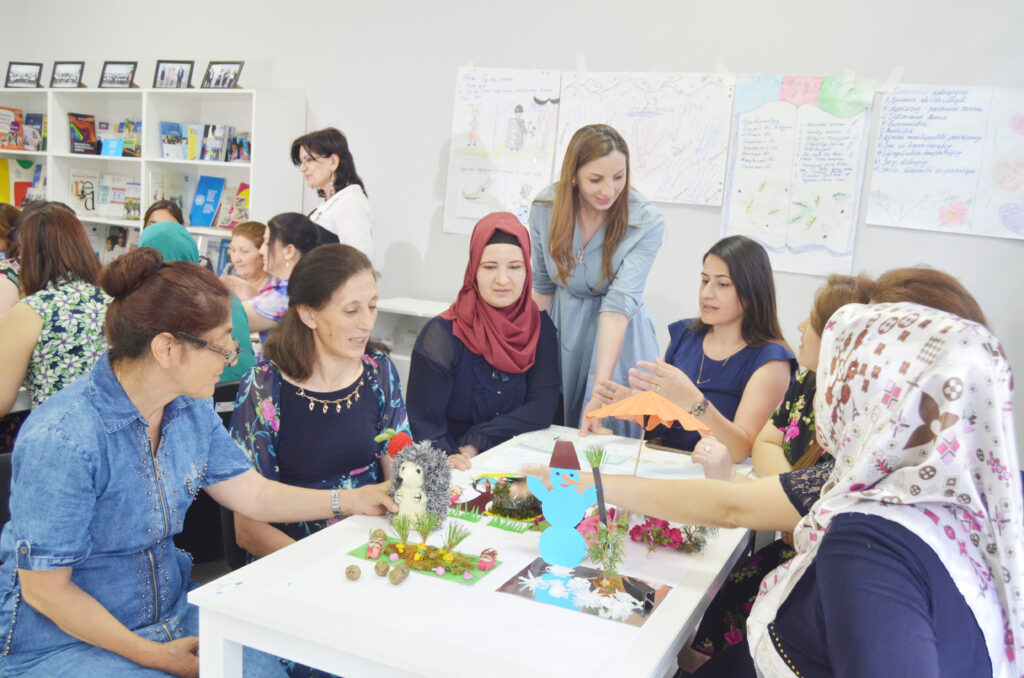 Refresher courses for primary school teachers conducted jointly with the Ministry of Education of Azerbaijan
Refresher courses for primary school teachers conducted jointly with the Ministry of Education of Azerbaijan
According to Leyla Tagiyeva, teachers have a lot of questions, misunderstandings and even protests at the beginning of the course. Accustomed to working according to the old methodology, many educators cannot accept the new model. However, in the course of the training programme, most teachers accept the principles of inclusion, which have positively established themselves in many countries across the world.
Senior lecturer at the State Pedagogical University of Azerbaijan, Gulshan Eminova, completed the training programme under the project and readily accepts the principles of IE. Today, she is formally recognised as a local trainer in this field.
‘Before the training, I had a general concept of working with children with disabilities in terms of the medical model of disability’, she explains. ‘The project helped me look at this issue from the point of view of the social model’.
‘Today I am convinced that inclusive education is an effective way to help children with disabilities to avoid isolation, and to feel that they are a part of the society in which they live’, she says.
She is convinced that involving children with disabilities in the general educational process will have a positive effect on the upbringing of all other students in the class. It will help to foster an understanding of the diversity of the world, a sense of tolerance and mutual assistance.
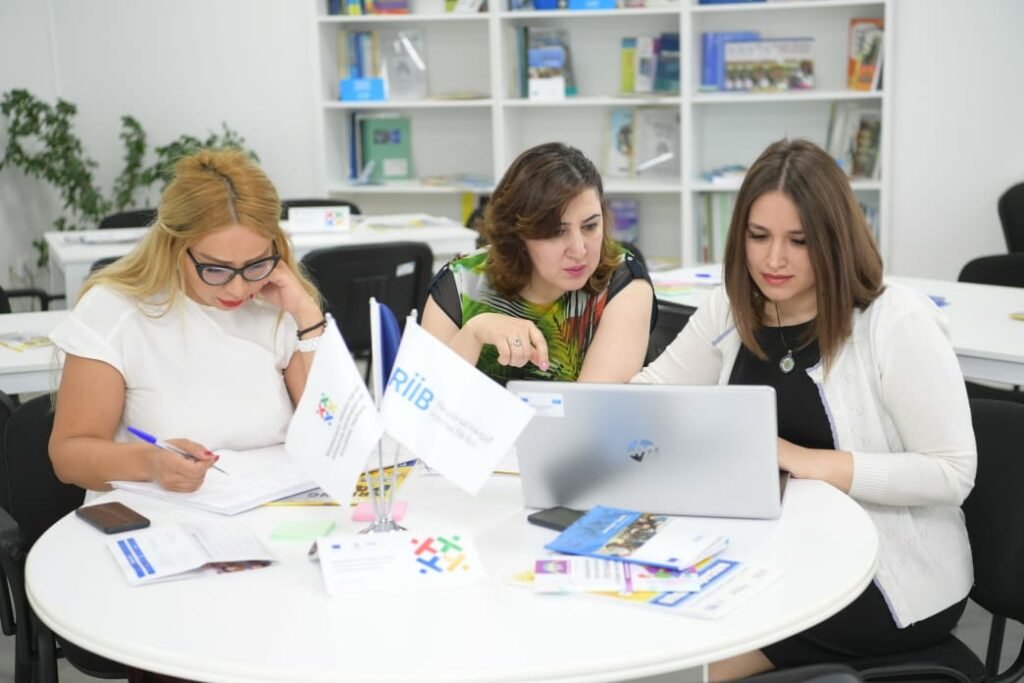 Gulshan Eminova (middle), senior lecturer at the State Pedagogical University of Azerbaijan
Gulshan Eminova (middle), senior lecturer at the State Pedagogical University of Azerbaijan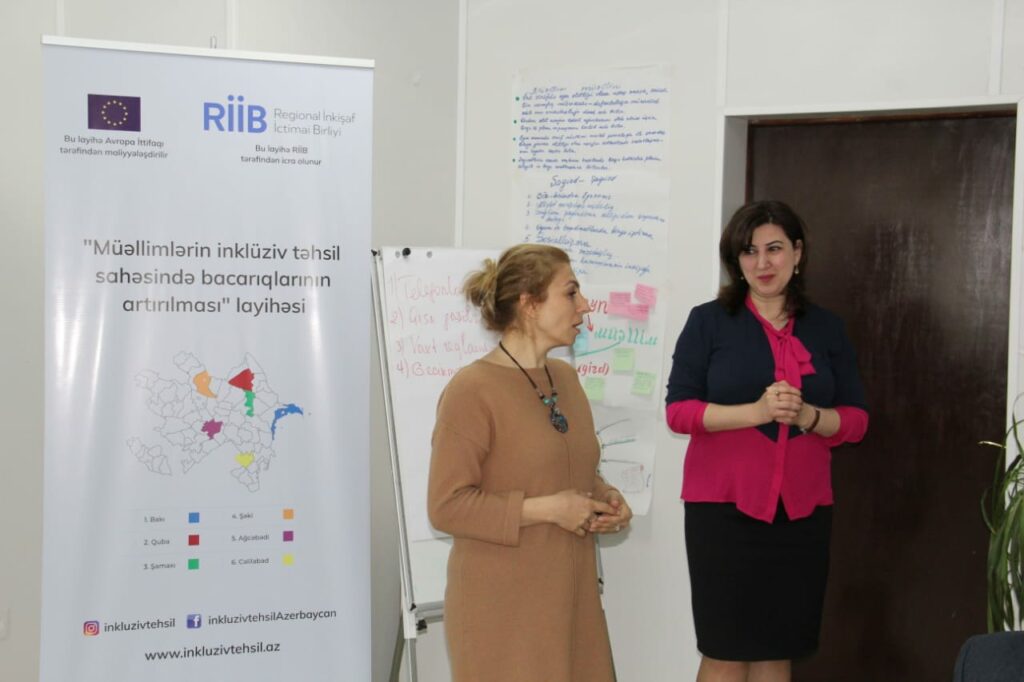 Gulshan Eminova (right)
Gulshan Eminova (right)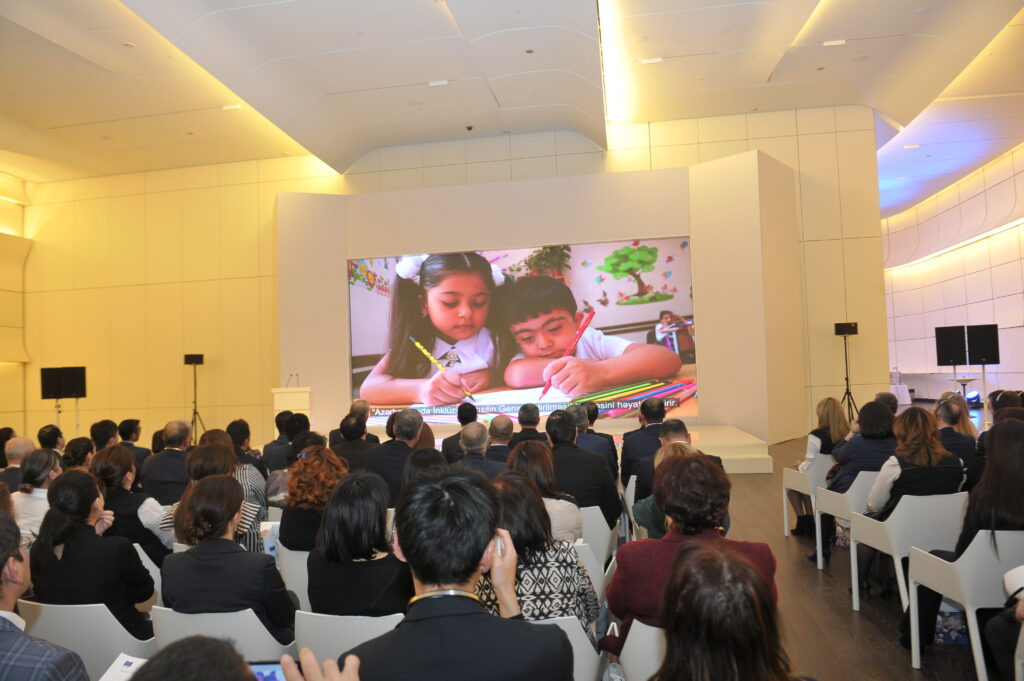 Screening of the video “We are all different, but equal” during the official opening of the project
Screening of the video “We are all different, but equal” during the official opening of the project
Teachers from the country’s regions do not resist the new trends. Kamal Nadyrov, the director of an elementary school in the village of Gubinsky District in the north of the country, does not see anything unusual in having all the children studying together.
‘There is God’s will for everything’, he says – meaning that no one is safe from disability and you need to treat people who find themselves in a difficult situation with understanding.
According to Kamal, sometimes parents of healthy children who, due to stereotypical views, do not want children with disabilities to study in the same classroom as their children. However, Kamal sets an example for both teachers and parents as his own daughter shares the same classroom with a child with a disability.
‘When parents see this, then no one else has any more questions or discontent’, he says.
Kamal is convinced that by giving children with disabilities a good start in life, and by educating them, they are given faith in themselves and hope for a successful future.
‘We should leave the stage behind when children with one or another kind of disability are deprived of the opportunity to receive basic education, and then a profession, remaining dependent on others for life’, he said.
However, Nadyrov says that for an effective and fully-fledged implementation of the principles of inclusive education across the country, it is necessary to work not only with teachers, but also with society – since obstacles are not so much in the inability of teachers, but in the unpreparedness of society.
International practice suggests that there is no need for special pedagogical strategies for working with children with disabilities. International consultants on inclusive education spoke about this with Azerbaijani teachers.
They are convinced that applying child-centred pedagogy, universal and modern teaching methods in the classroom will improve the quality of education for all children, and not just of those with disabilities.
‘Inclusive schools are good schools for everyone’ is the motto of ongoing reforms.
Azerbaijan is at the very beginning of a path towards introducing inclusive education. The country is beginning to integrate children with mild disabilities into schools, as well as preparing society and adapting the entire educational system.
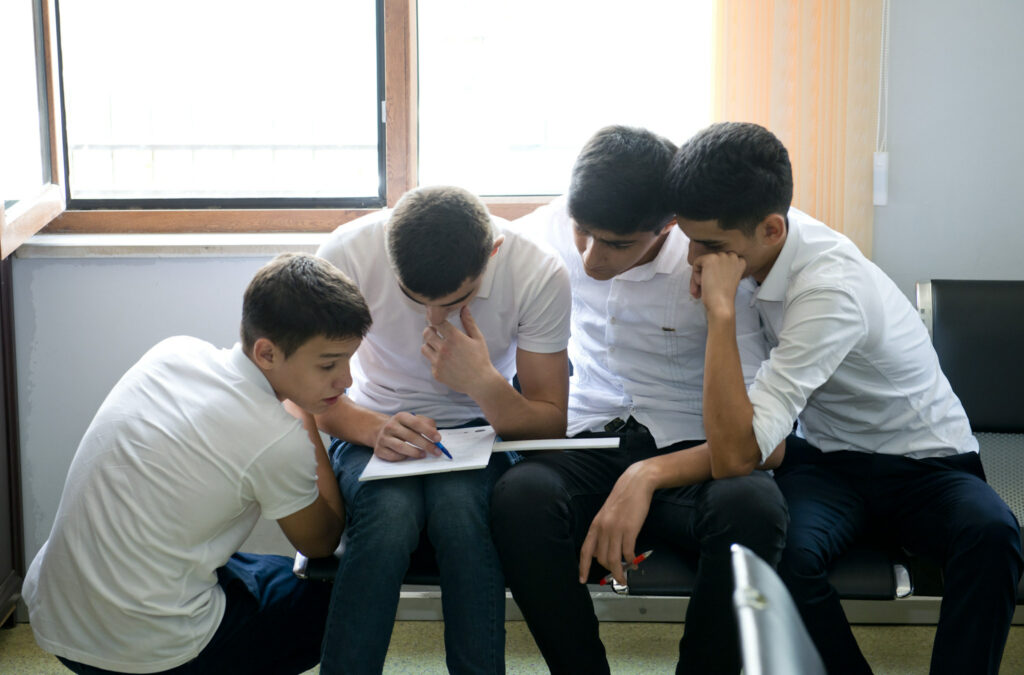 EU-funded project “Enhancing Teacher Skills in Inclusive Education” is contributing towards making a difference to Azerbaijan’s education for children with disabilities
EU-funded project “Enhancing Teacher Skills in Inclusive Education” is contributing towards making a difference to Azerbaijan’s education for children with disabilities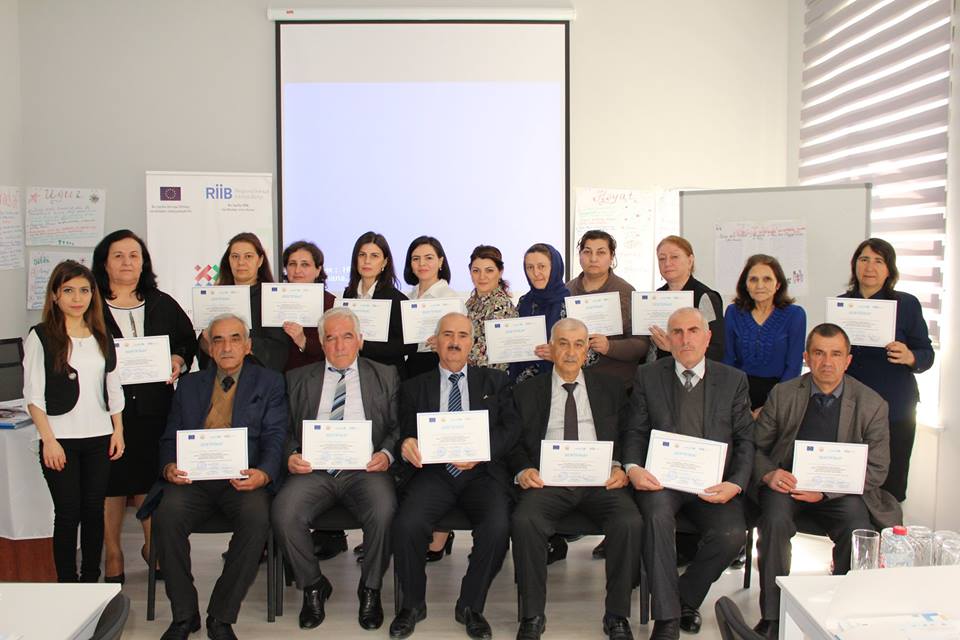 The faculty of the Azerbaijan State Pedagogical University, who have completed the trainings, will be involved in the further process of students’ education
The faculty of the Azerbaijan State Pedagogical University, who have completed the trainings, will be involved in the further process of students’ education
However, the solution to a multitude of incidental issues is on the agenda: from compiling an accurate database across the country and preparing school infrastructure, to determining clear parameters of disabilities with which children can be accepted at schools (such as at what stage and the number of children a particular school can accept, etc.).
According to international experts, only a very small group of children have severe disabilities where it affects their learning process. In these cases, other communication methods may be needed such as Braille or sign language, as well as various auxiliary devices.
By the time the education system, and society, in Azerbaijan are ready to involve children with severe disabilities the children may need more in-depth support. In the meantime, it is important to begin the process.
Author: Elena Ostapenko
Article published in Azerbaijani and Russian by 1news.az.
MOST READ
SEE ALSO

No, time is not on Russia‘s side
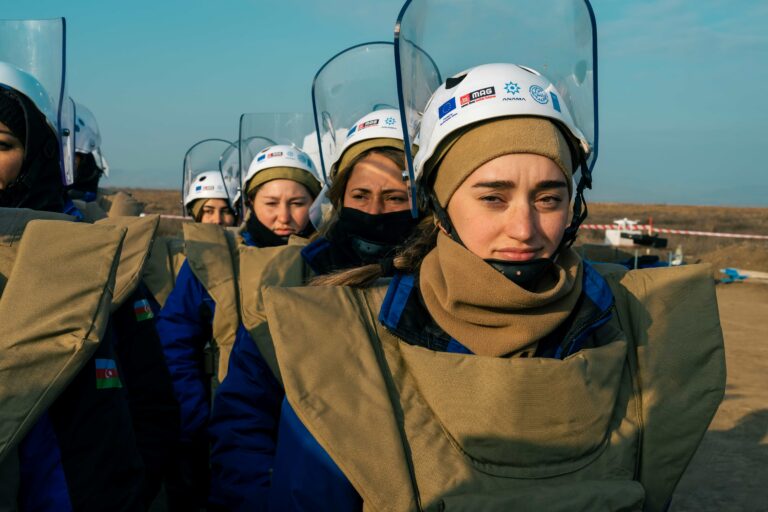
I have no regrets: the Azerbaijani women trained to clear mines
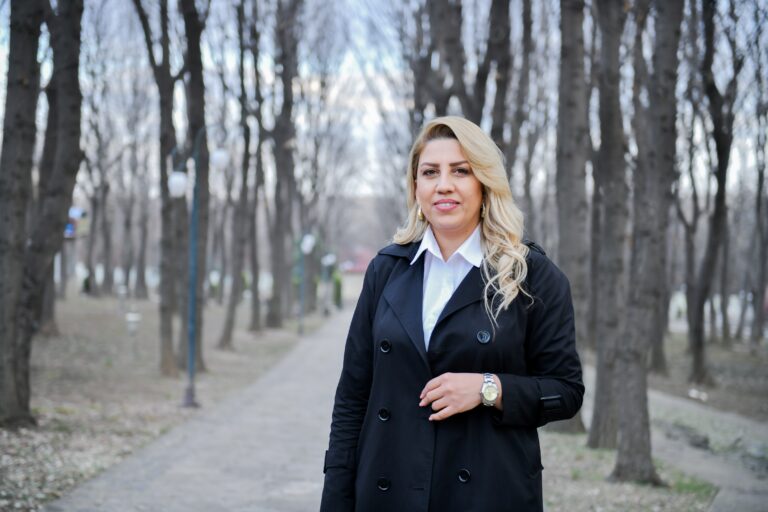
Turning a hobby into business: how Vusala Akhmadova from Tovuz helps women and children develop

Be one step ahead of a hacker: check simple cybersecurity tips!
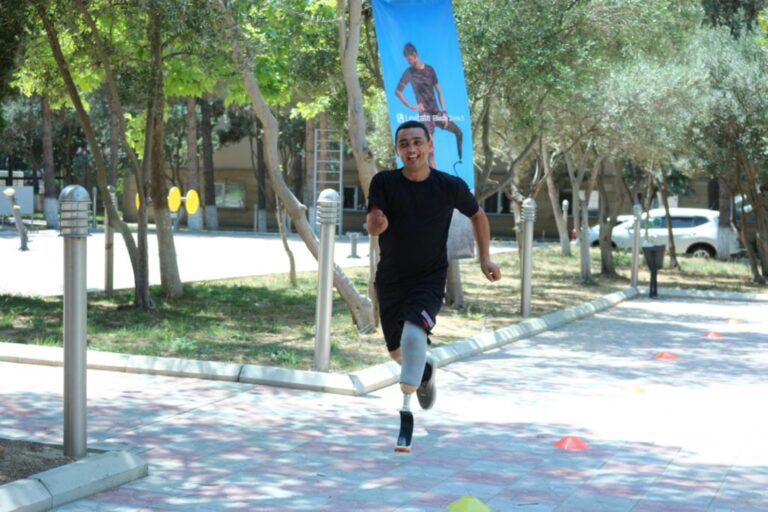
A chance for a better life: restoring justice for people with disabilities in Azerbaijan
More campaign pages:
Interested in the latest news and opportunities?
This website is managed by the EU-funded Regional Communication Programme for the Eastern Neighbourhood ('EU NEIGHBOURS east’), which complements and supports the communication of the Delegations of the European Union in the Eastern partner countries, and works under the guidance of the European Commission’s Directorate-General for Neighbourhood Policy and Enlargement Negotiations, and the European External Action Service. EU NEIGHBOURS east is implemented by a GOPA PACE-led consortium. It is part of the larger Neighbourhood Communication Programme (2020-2024) for the EU's Eastern and Southern Neighbourhood, which also includes 'EU NEIGHBOURS south’ project that runs the EU Neighbours portal.

The information on this site is subject to a Disclaimer and Protection of personal data. © European Union,







